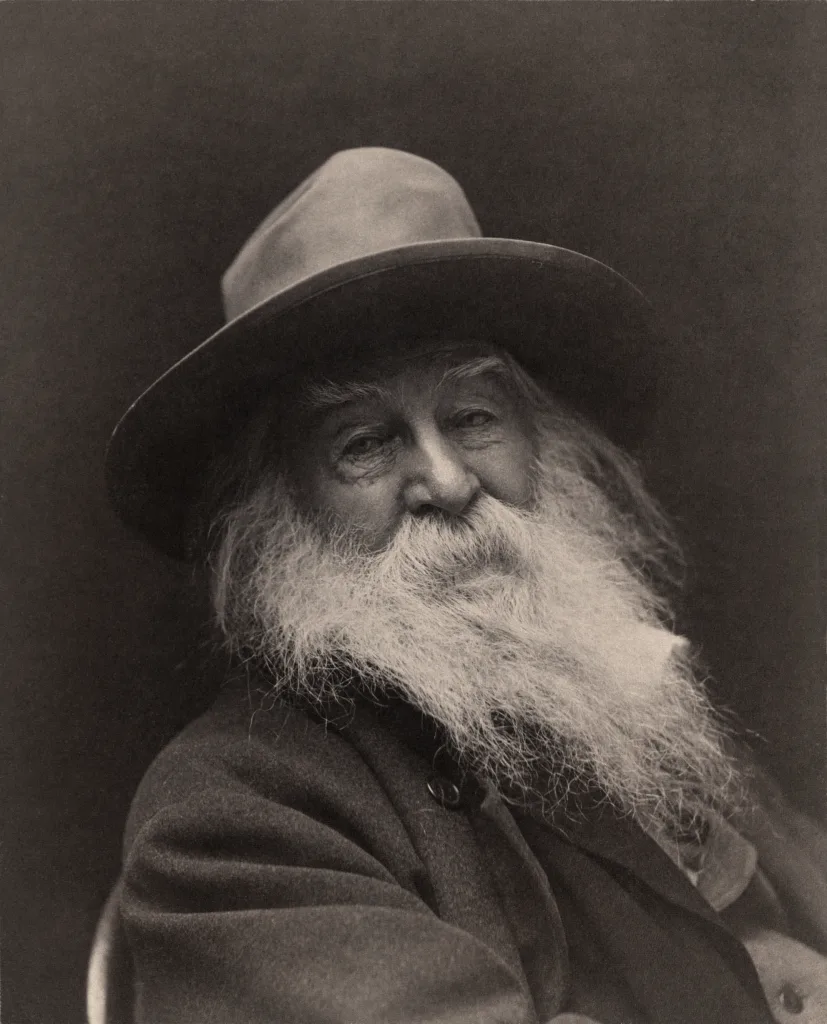In Walt Whitman’s thought-provoking poem, “When I Heard the Learn’d Astronomer,” the renowned poet challenges the conventional approach to understanding the wonders of nature. Through the use of irony, Whitman invites readers to question the effectiveness of scholarly teachings and urges them to seek a more personal and intuitive connection with the natural world. This article will explore the deeper meaning behind the poem, shedding light on the significance of the astronomer and the speaker’s reaction to his lecture.
Whitman begins by describing the astronomer’s lecture, emphasizing the use of visual aids such as “figures,” “columns,” and “diagrams.” The astronomer, representing the scientific approach, relies on these tools to explain the mysteries of the universe. However, Whitman’s use of irony suggests that this detached and analytical method fails to capture the true essence of nature’s wonders.
While the audience applauds the astronomer’s lecture, the speaker’s reaction is quite different. He becomes “tired and sick” and decides to leave the lecture hall, seeking solace outside. Here, Whitman introduces the theme of personal experience versus intellectual exploration. The speaker craves a direct encounter with nature, one that cannot be attained within the confines of a lecture hall.
As the speaker steps outside, he immerses himself in the natural world and experiences a profound connection with the stars. Whitman suggests that true understanding of nature lies not in the accumulation of knowledge but in the intuitive and mystical encounters we have with it. The speaker’s decision to distance himself from the astronomer’s lecture signifies a shift towards a more profound and personal understanding of the universe.
Through this poem, Whitman advocates for a more holistic approach to comprehending the world around us. He encourages readers to embrace the poetic vision, which values personal experiences, emotions, and intuition over analytical explanations. By rejecting the constraints of traditional academia, the speaker finds a deeper connection with nature, one that resonates with his soul and inspires awe and wonder.
“When I Heard the Learn’d Astronomer” challenges the notion that scientific knowledge alone can capture the true essence of nature. Whitman’s use of irony highlights the limitations of classroom learning when it comes to understanding the profound mysteries of the universe. The poem serves as a reminder to seek personal encounters with nature, allowing our intuition and emotions to guide us towards a more profound understanding of the world around us. By embracing the poetic vision, we can unlock the true beauty and meaning that lies within the natural world.
What Is The Meaning Of The Poem When I Heard The Learn D Astronomer?
The poem “When I Heard the Learn’d Astronomer” by Walt Whitman explores the contrast between the scientific approach to understanding nature and the intuitive, mystical connection that the poet feels. In the poem, the speaker attends a lecture by a knowledgeable astronomer and initially believes that he will gain a deeper understanding of the celestial phenomena through the scientist’s teachings.
However, as the astronomer presents his facts and figures, the speaker becomes increasingly disenchanted. He describes feeling “tired and sick” of the lecture, suggesting that the scientific approach is draining and unsatisfying. The repetitive and monotonous nature of the lecture becomes tedious, and the speaker longs for a different, more personal connection with the celestial world.
The turning point in the poem occurs when the speaker leaves the lecture hall and steps outside. Suddenly, he is overwhelmed by the beauty and wonder of the night sky. The stars appear more vibrant and alive, and the speaker feels a profound sense of connection with the universe. The poem suggests that true understanding and appreciation of nature come not from scientific analysis and calculations, but from direct experience and personal connection.
Whitman emphasizes the importance of intuition and mysticism in understanding nature. The poet’s direct sensory experience, unmediated by scientific analysis, allows for a deeper understanding and appreciation of the natural world. The poem suggests that the scientific approach, while valuable in its own right, can sometimes limit our ability to truly connect with and appreciate the beauty and complexity of the natural world.
“When I Heard the Learn’d Astronomer” explores the tension between scientific knowledge and intuitive understanding. It encourages us to seek a balance between the rational and the mystical, recognizing that both perspectives have their merits and limitations.

What Is The Main Theme Or Message Of Whitman’s When I Heard The Learn D Astronomer?
The main theme or message of Whitman’s poem “When I Heard the Learn’d Astronomer” is the importance of direct, personal experience with nature and the limitations of relying solely on intellectual knowledge. The poem explores the contrast between the scientific, analytical approach to understanding the universe and the more intuitive, sensory experience of being in nature.
Whitman presents the speaker as someone who initially attends a lecture by a knowledgeable astronomer to learn about the stars and the mysteries of the universe. However, the speaker soon becomes disenchanted with the dry, academic atmosphere of the lecture hall. The repetitive use of the word “when” in the opening lines emphasizes the speaker’s boredom and restlessness.
The poem then shifts in tone as the speaker leaves the lecture and ventures outside. Here, the speaker finds solace and a deeper understanding of the cosmos by directly experiencing the night sky. Whitman uses vivid and sensory language to describe the speaker’s encounter with the stars, such as “Look’d up in perfect silence at the stars” and “how soon unaccountable I became tired and sick.”
Through this contrast, Whitman suggests that the study of nature should not be limited to intellectual analysis and scientific theories alone. Instead, he encourages the reader to engage with nature firsthand, to observe and experience its wonders directly. The poem conveys a sense of awe, wonder, and the deep connection between the individual and the natural world.
The main theme or message of Whitman’s “When I Heard the Learn’d Astronomer” is the importance of personal experience and observation in understanding and appreciating nature. It encourages the reader to go beyond intellectual knowledge and engage with the world around them in a direct, sensory way.
What Is The Irony In When I Heard The Learn D Astronomer?
The irony in Whitman’s “When I Heard the Learn’d Astronomer” lies in the contrast between the sterile environment of the classroom and the wonder and awe of experiencing the natural world. In the poem, the speaker attends a lecture by an astronomer who presents the topic through “figures,” “columns,” and “diagrams.” These words emphasize the dry and analytical nature of the classroom setting, suggesting that the experience of learning is limited to intellectual knowledge and detached observation.
However, the irony emerges when the speaker becomes overwhelmed by the information presented in the lecture. The use of the word “till” suggests a sense of endurance, as if the speaker is enduring the lecture rather than truly engaging with it. This highlights the disconnect between the intellectual understanding of the subject matter and the emotional connection that the speaker craves.
The poem takes a turn when the speaker leaves the lecture hall and looks up at the night sky. The use of the word “wandering” suggests a sense of freedom and exploration, contrasting with the confined space of the classroom. The speaker’s reaction to the night sky is described as a “mystical moist night-air,” which conveys a sense of wonder and enchantment. This stark contrast between the dry, analytical lecture and the emotional, sensory experience of the natural world underscores the irony in the poem.
The irony in “When I Heard the Learn’d Astronomer” lies in the juxtaposition of the sterile, analytical classroom setting with the awe-inspiring beauty and wonder of the natural world. The poem suggests that true understanding and appreciation of the universe cannot be confined to diagrams and figures but must be experienced firsthand.
When I Heard The Learn D Astronomer What Does The Speaker Do In Reaction To The Lecture?
In response to the lecture, the speaker in the poem “When I Heard the Learned Astronomer” experiences a strong reaction. Rather than joining the audience in applauding the learned astronomer, the speaker becomes tired and sick. This reaction prompts the speaker to leave the lecture hall and seek solace outside.
The poem portrays a stark contrast between the scientific, analytical approach of the astronomer and the speaker’s yearning for a more immersive and experiential connection with the subject matter. The use of visual aids, such as diagrams and charts, by the astronomer highlights the reliance on intellectual understanding and detached observation.
However, the speaker’s reaction suggests a dissatisfaction with this purely intellectual pursuit of knowledge. The reference to feeling tired and sick indicates a sense of weariness and disconnection from the lecture. The speaker’s decision to leave the lecture hall and go outside signifies a desire for a more direct and personal encounter with the wonders of astronomy.
In going outside, the speaker seeks to experience the beauty and awe-inspiring nature of the night sky firsthand. This action represents a rejection of the impersonal and analytical approach of the lecture in favor of a more intuitive and holistic understanding of the celestial realm.
The speaker in “When I Heard the Learned Astronomer” responds to the lecture by becoming tired and sick, leading them to leave the lecture hall and seek a more immersive connection with the subject matter outside.

Conclusion
The poem “When I Heard the Learn’d Astronomer” by Walt Whitman portrays the limitations of scientific knowledge when it comes to truly understanding and appreciating the wonders of nature. The astronomer, with all his diagrams and charts, fails to capture the true essence of the celestial phenomena he studies. Whitman employs irony to highlight the discrepancy between the sterile environment of the lecture hall and the immersive experience of being in nature. The speaker’s reaction of feeling “tired and sick” reflects his rejection of the academic approach and his yearning for a more intuitive and mystical connection with the natural world. This poem serves as a reminder to seek personal experiences and direct encounters with nature in order to fully grasp its beauty and magnitude.
